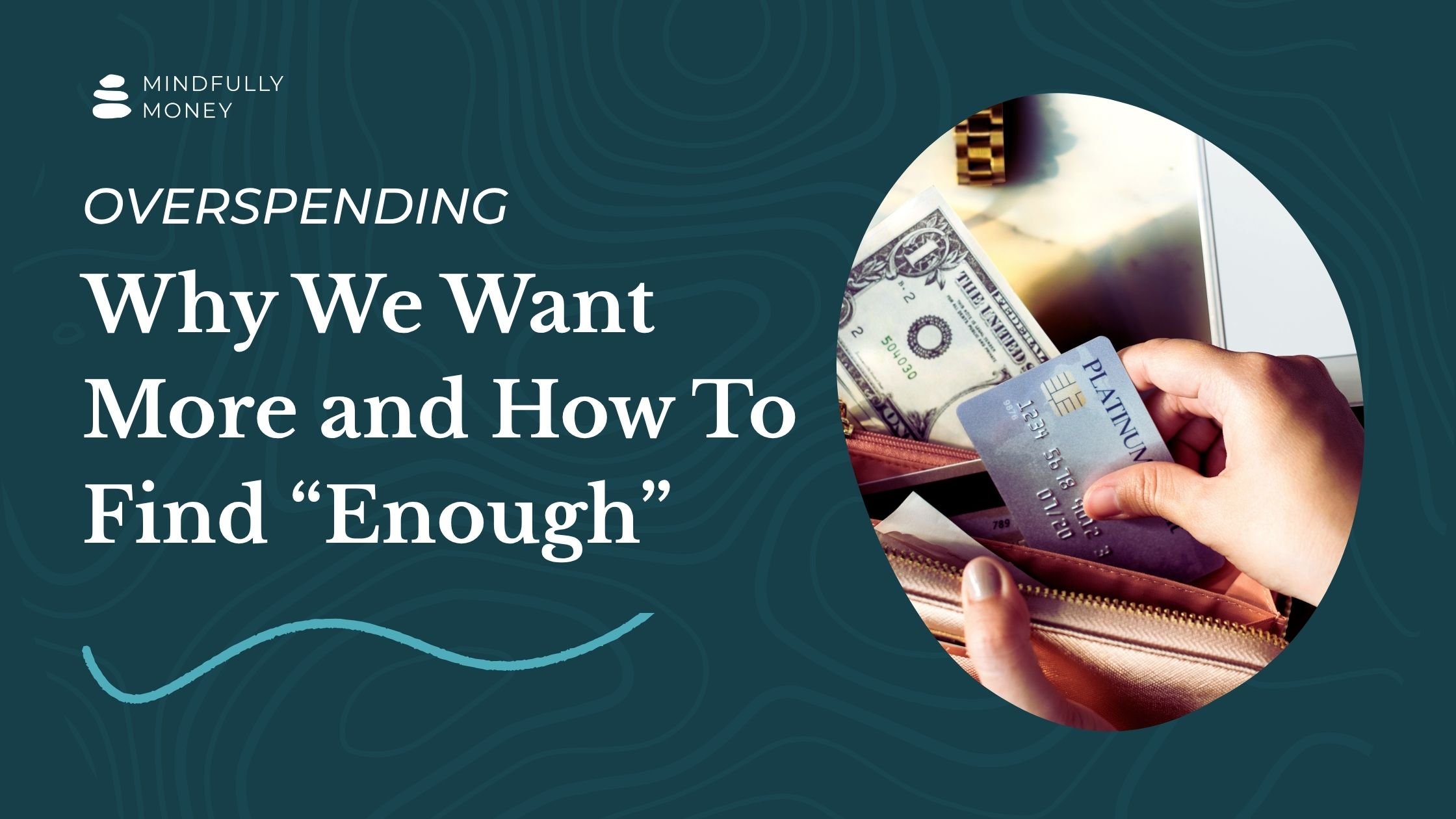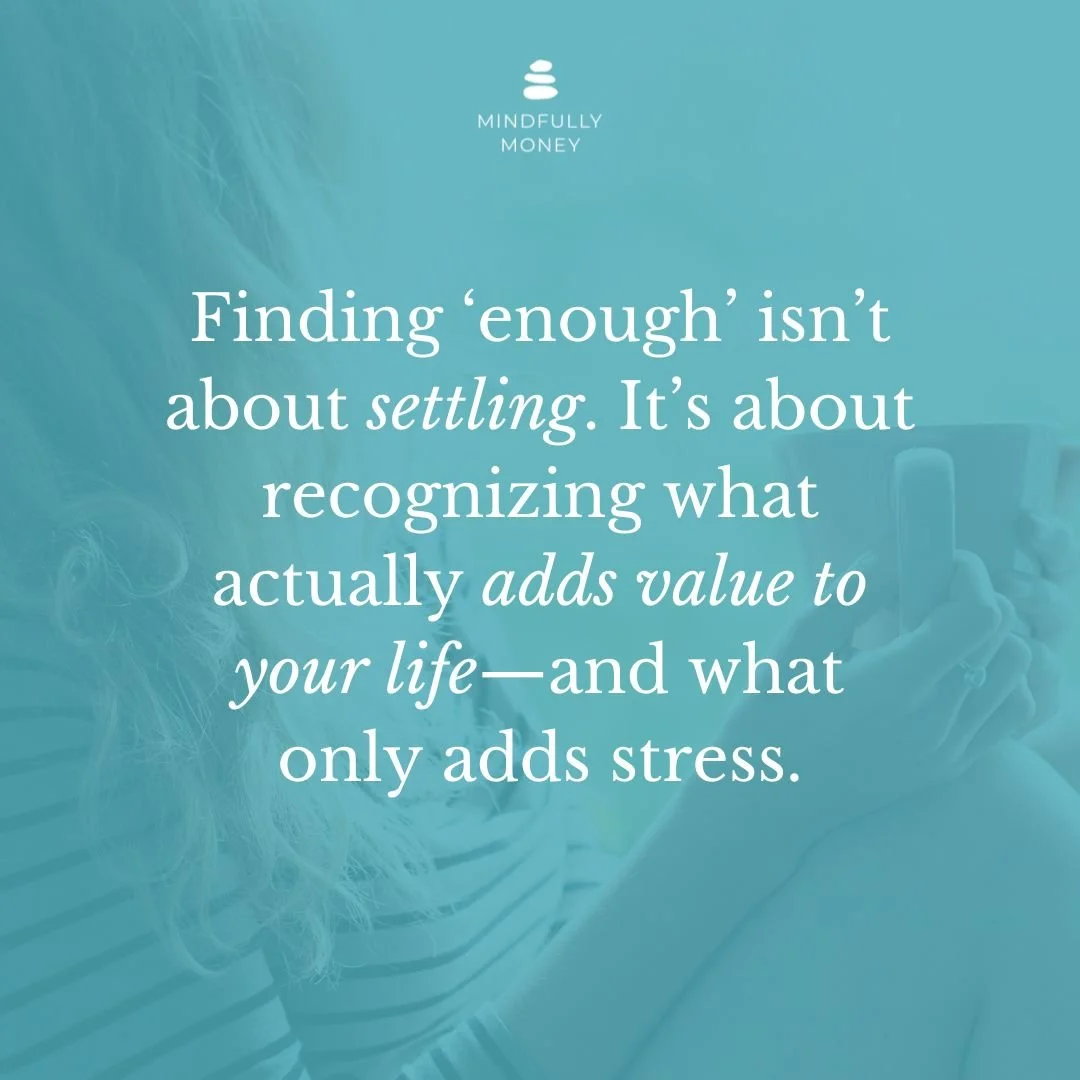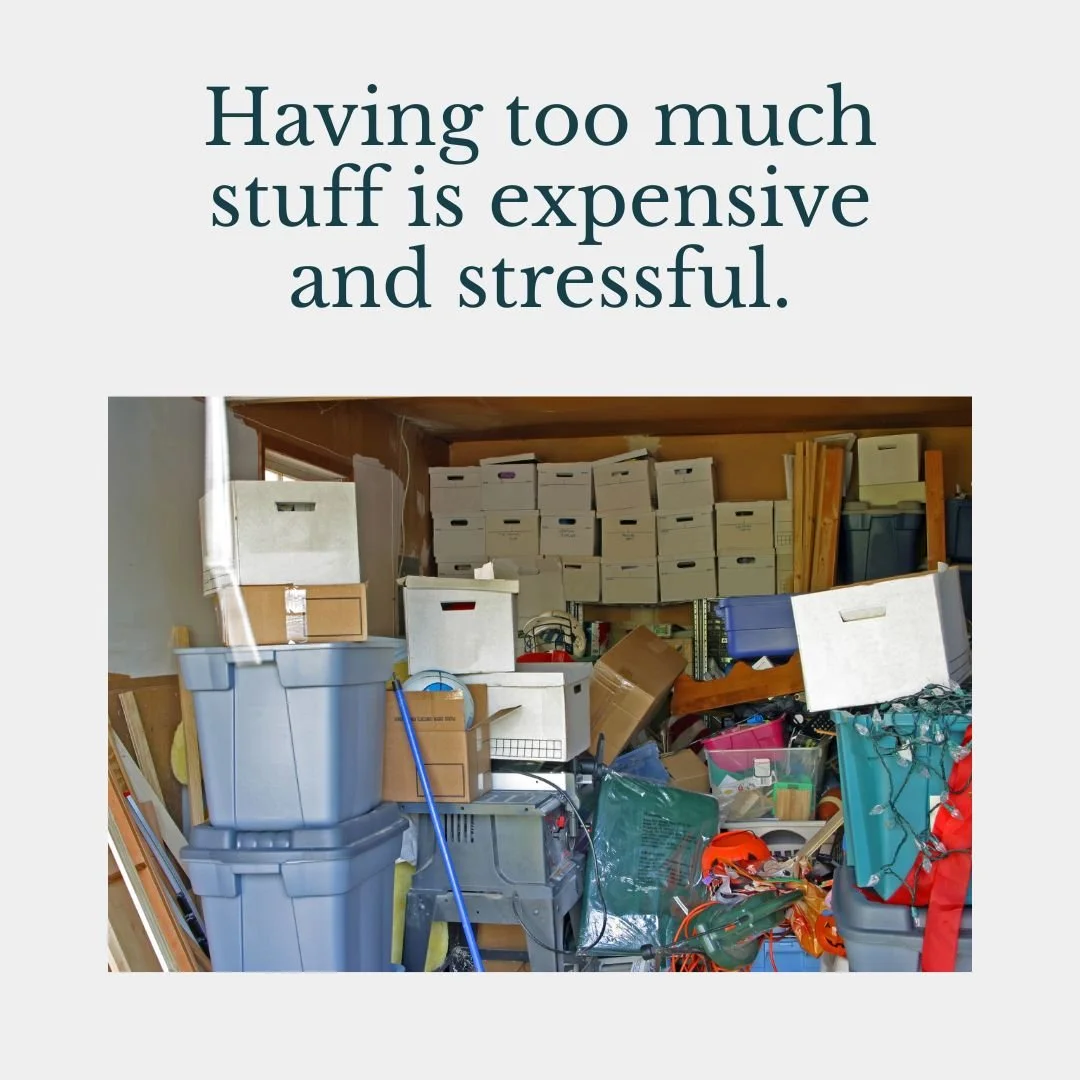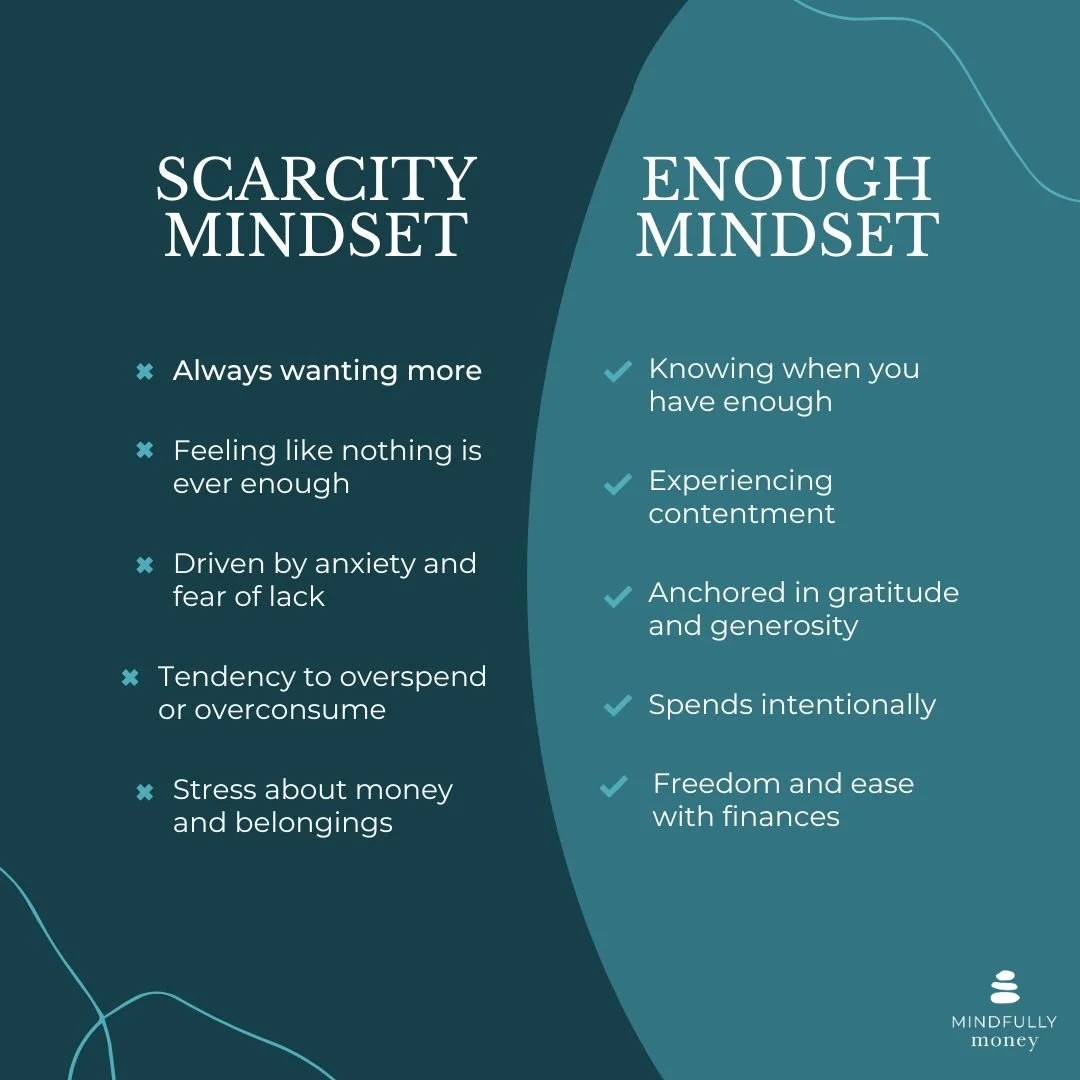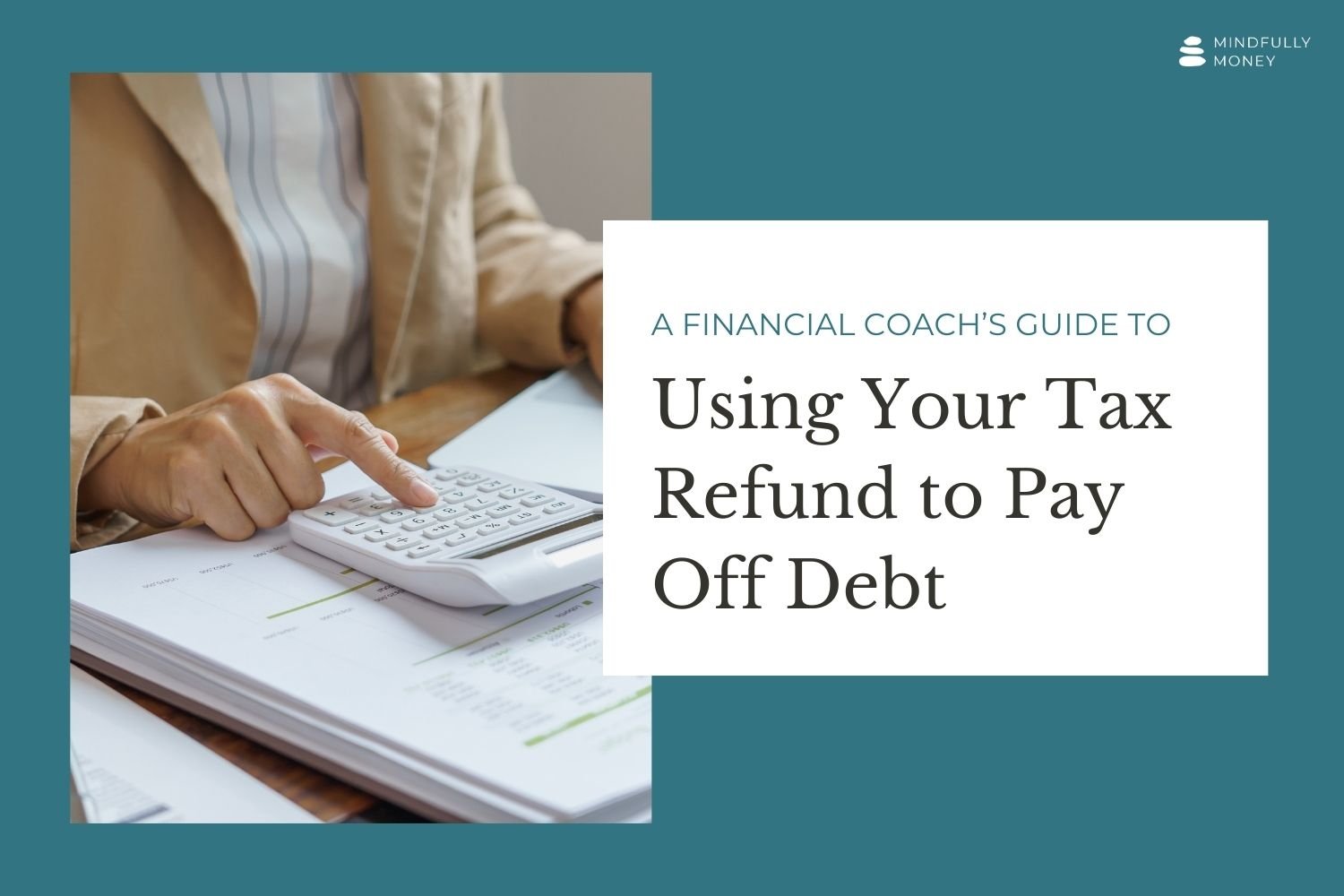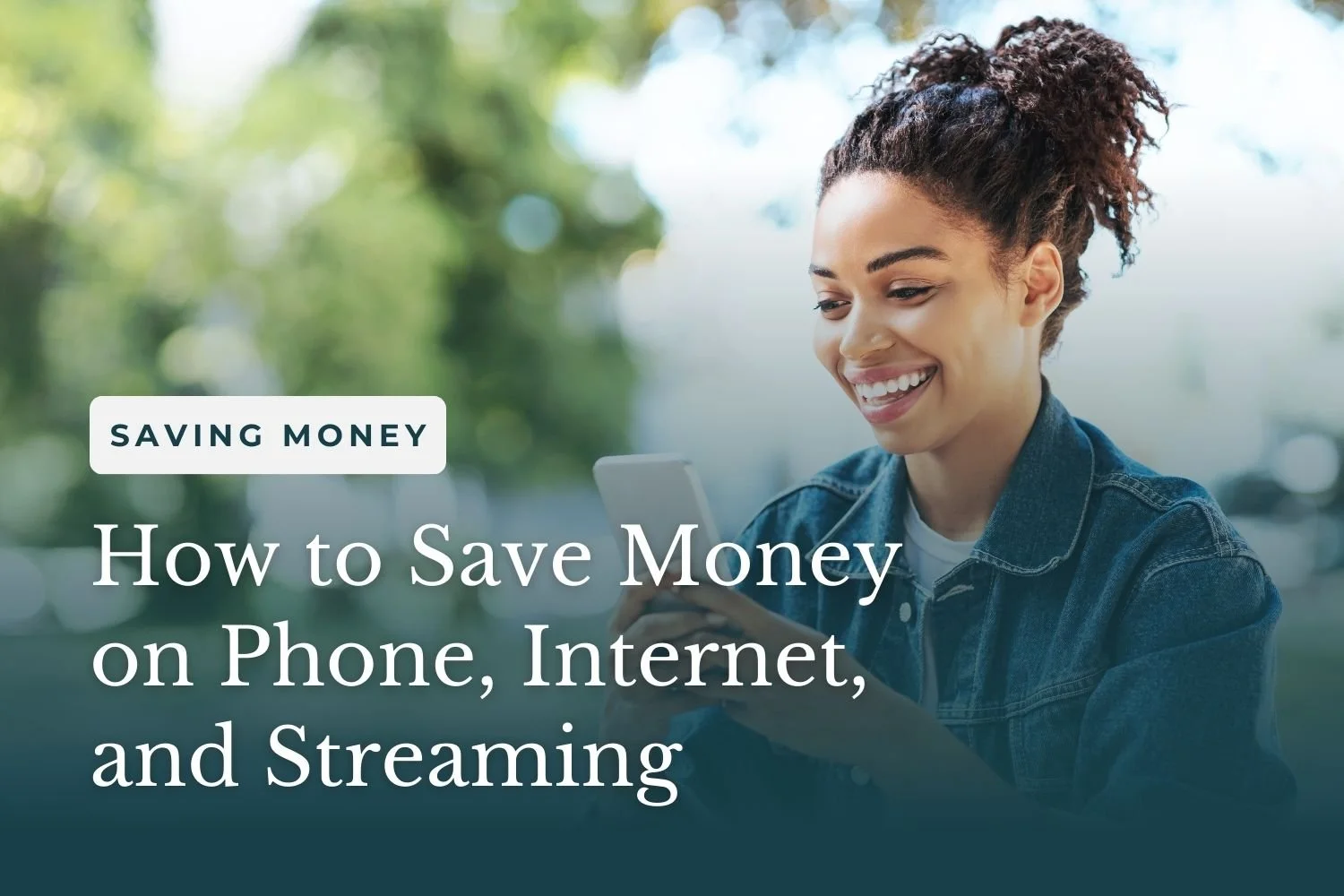Overspending: Why We Want More and How To Find “Enough”
Have you ever wondered why you keep spending money no matter how much you want to stop?
Many of us feel like there’s something wrong with us because we struggle with overconsumption—eating too much, drinking too much, spending too much, etc. We feel like we’re “bad”, that we lack self control, and just need more willpower. But these behaviors are not signs of weakness or personal failure. They are deeply ingrained survival mechanisms that once kept us alive.
For most of human history, we lived in a world of scarcity—where the constant desire for more was a survival mechanism. Every waking moment was spent trying to get enough to eat, a safe place to live, anything else that would make life a little easier. As a result, our brains evolved to always seek more and hold on to resources whenever they were available.
The problem is that now we live in a world of abundance, where we produce and consume beyond what is required for survival. Even those stuck in systemic poverty have access to the excesses the modern world is capable of producing.
But our brains haven’t adjusted. We still experience that constant drive for more even though many of us have more than enough. It’s the reason why bigger always seems better and two is better than one. It’s why I have a drawer of 20 toothbrushes that I keep around “just in case” even though I use an electric one and still get a new one on every visit to the dentist.
It’s this mismatch between how our brains are programmed and the realities of our modern world that makes it feel like we’re constantly fighting ourselves when it comes to spending, eating, or any other form of consumption.
Marketers and businesses capitalize on this, constantly telling us that the next purchase will make us happier, more secure, or more successful. But instead of finding satisfaction, we often find ourselves in a cycle of buying, feeling momentary pleasure, then quickly returning to a sense of lack.
So if you find yourself spending, eating, drinking, or consuming more than you want, it’s not because you’re defective. It’s because you’re human.
And THAT means that, first and foremost, you should give yourself some compassion and let go of that shame you've been carrying around.
But what else can you do when you keep spending money even though you want to stop? First, let’s talk about what doesn’t work:
Restriction is NOT the Answer
A lot of advice tells you to restrict yourself—go on a diet, start budgeting, don’t buy things you don’t need. And sometimes, abstaining entirely is necessary and helpful. Many recovering alcoholics have had success in giving up alcohol entirely. If you’re struggling with addiction, it’s important to get help from mental health professionals or agencies that can provide the support you need.
But for most of us, extreme restrictions are not an effective way to stop ourselves from consuming.
For example, let’s say you decide to follow the classic advice to “stop eating out completely” to save money. At first, it might feel empowering. The initial excitement keeps you motivated and you stay on track for a while. But over time it gets harder and the sense of deprivation sets in. You start to wonder if getting out of debt or saving money is worth it when you can’t do anything you enjoy.
And then one day you’re tired and busy and you just need to feel like life is worth living and you give in. Then the shame kicks in because you feel like you’ve failed. And once you’ve failed once, you might as well give up because clearly you’re not capable of sticking to your goal.
The problem is that abstaining from things is hard. You get stuck in a cycle of trying to restrain yourself, feeling deprived, giving up, and then feeling more guilty and ashamed than ever. That’s why programs like Alcoholics Anonymous only work because they have extensive support and systems to help you stay on track. It’s not realistic to expect yourself to make drastic life changes requiring restriction on your own.
Instead of swinging between overindulgence and restriction, we need a different approach—one that helps us find balance and contentment rather than punishment.
What to Do Instead
So if we’re programmed to seek more and restriction isn’t the answer, what is?
The key is to shift from a scarcity mindset (always feeling like we don’t have enough) to an enough mindset (recognizing when we have what we truly need).
In 1992, Joe Dominguez and Vicki Robin published a book called Your Money or Your Life: Transforming Your Relationship with Money and Achieving Financial Independence. In this book, they talk about something they called the Fulfillment Curve. As you can see from this adapted illustration, spending initially improves our quality of life—you’re able to meet all of your basic needs for food, safety, shelter, etc. As you gain more money, your level of stress and worry decreases.
Then we start to add in things that provide comfort and convenience—the things that aren’t critical for survival, but that make our lives better. We’re able to go on vacations, buy things for fun, and invest in meaningful experiences. Maybe we even include some luxuries.
But eventually, we reach a plateau where additional spending no longer increases our happiness in the same way. You might continue to feel an increase in satisfaction as you earn more, accomplish more, and can start thinking about your legacy. But buying more doesn’t have the same impact that it did at lower levels. In fact, buying more (consuming more) can actually lead to less happiness because of financial stress, clutter, or misaligned priorities.
For example, let’s talk about buying a house. It’s generally accepted that a bigger house is better. It has more space, more storage for the things we buy, room for family and friends to stay when they visit, space for kids to play, etc. And there’s some truth in this. A family of five is probably going to be happier in a 2500 sq ft home than they’d be in a 1200 sq ft home. Two bathrooms is certainly better than one.
But at a certain point, more space, bedrooms, and bathrooms don’t necessarily make life better—it just means more cleaning, more maintenance, and more things you have to buy to fill and decorate the rooms.
Is all of that worth it? Does having an extra large home to care for and maintain create so much extra joy and satisfaction that it’s worth the cost in money, time, and energy? Maybe. But I think most people would agree that it doesn’t. Most of us don’t have the resources to spend endlessly on things that aren’t that meaningful, and continuing to spend on them can lead to not having enough for the things that do matter. (Or worse, to debt or even bankruptcy.)
Essentially, the goal is to have the Goldilocks house—not too small and not too big. That’s the point of enough. You want to find that point where you have what you need and can do the things you want to do, without going overboard and experiencing the negative effects of having too much.
Shifting your focus to finding your personal ‘enough’ allows you to spend in ways that genuinely bring joy and security—without falling into the trap of overconsumption.
Dominguez and Robin describe this optimal state as:
“Enough for our survival. Enough comforts. And even enough little ‘luxuries.’ We have everything we need; there’s nothing extra to weigh us down, distract or distress us, nothing we’ve bought on time, have never used, and are slaving to pay off. Enough is a fearless place. It’s appreciating and fully enjoying what money brings into your life and yet never purchasing anything that isn’t needed and wanted.” (Dominquez and Robin, 1992, 25)
Once you reach that point of enough, two things can happen:
You can continue to buy more, trying to achieve some perfect, idealized state that doesn’t really exist and run out of money or get stuck in a state of stress where you are tied to and limited by your “things.” Or,
You can focus on enjoying and appreciating that state of having what you need and want and use anything beyond that to increase your sense of fulfillment in the world.
Developing that sense of what is enough for you can help you stop buying things out of habit and be more aware of when you’re buying things that are negatively impacting you and your finances.
Because once you reach your point of enough and stop consuming, you have more freedom, flexibility, and the capacity to spend time, money and energy on the things that light you up and give you a sense of purpose.
Maybe you’d want to move to the country and start a hobby farm with fainting goats, stop working and become a writer or volunteer, spend a month each year in an apartment overlooking the canals of Copenhagen, invest in women-owned and POC-owned businesses to help close the venture funding gap, leave a legacy for your children and grandchildren, leave the corporate world and teach yoga, donate time and/or money to a cause that’s important to you.
So how do you find that point at which you have enough?
Practical Steps to Identify Your ‘Enough’
If you’re ready to break free from the cycle of overconsumption and find financial balance, here are some steps to start:
Awareness: Track your spending and notice how different purchases make you feel. Do they bring lasting satisfaction, or is the excitement short-lived? Pay attention to patterns—are there certain types of purchases that consistently leave you feeling regretful or unfulfilled?
Related: Free Spending Reset Guide to help you build awareness and spend with intention.
Decluttering Your Finances: Identify areas where spending has become more of a habit or obligation than a source of joy. Are there things you buy automatically that don’t really add value to your life? Canceling unused subscriptions or cutting back on routine expenses that no longer serve you can create space for more meaningful spending.
Clarify Your Values: Define what truly matters to you. When your spending aligns with your values, it’s easier to feel content rather than constantly chasing more.
Define What Security Means to You: Instead of focusing on an arbitrary financial goal, ask yourself: What does financial security feel like? Is it having six months of expenses saved? Being able to take a vacation without stress? This helps set realistic and personal benchmarks for "enough."
Practice Buying with Intention: Reflect deeply on what a meaningful and fulfilling life looks like for you. Instead of asking, “Can I afford this?” try asking, “Does this add to my well-being?”
Practice Gratitude for What You Have: Regularly acknowledging what you already have can shift your mindset from scarcity to sufficiency. A simple habit, like listing three things you appreciate about your financial situation each day, can help reframe your perspective.
Reevaluate Your Commitments: Are you spending on things just because you always have? Audit subscriptions, memberships, and habits to see if they still add value. Canceling what no longer serves you frees up resources for what truly matters.
Try a ‘No-Buy’ Experiment: Set a time frame (a week, a month) where you only purchase necessities. This isn't about restriction but about pausing mindless consumption and learning what you truly miss versus what you can live without.
Set ‘Enough’ Numbers: Define limits for different spending areas. For example, decide that three streaming services are enough, five pairs of quality jeans are enough, or dining out twice a month is enough. This creates intentional boundaries without deprivation.
Conclusion: A Mindful Approach to Money and Consumption
Breaking free from the scarcity mindset isn’t about forcing yourself into deprivation—it’s about being intentional. True financial confidence comes from knowing that you have enough and that your resources are aligned with your priorities.
Instead of shaming yourself for wanting more, recognize that this drive is natural—but also, that you have the power to redefine what ‘enough’ looks like for you. When you let go of the scarcity mindset, you can step into financial security and freedom on your own terms.
Click here for more articles on emotional spending and impulse buys.

